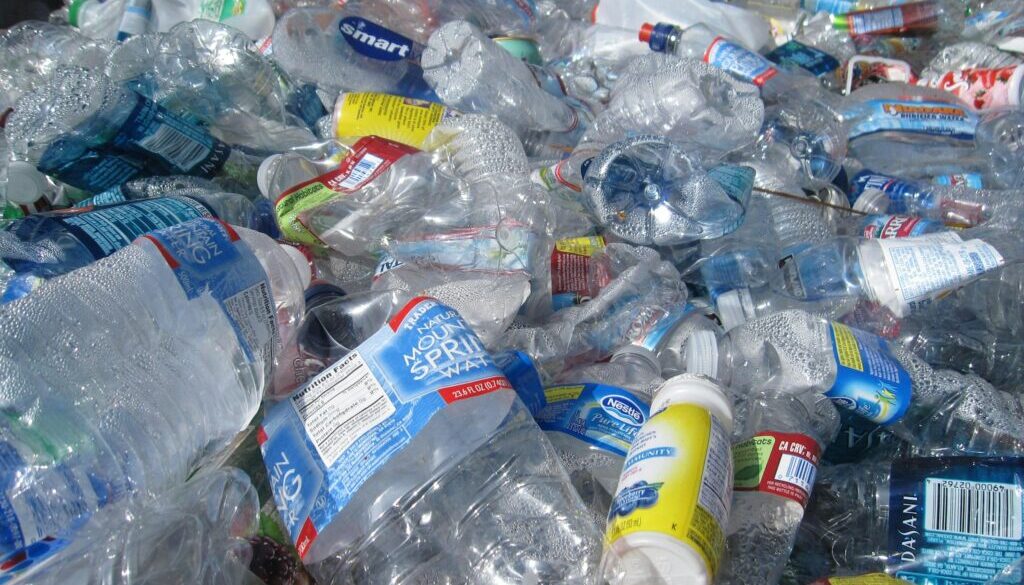US social costs of plastics may total over $1 trillion annually, report finds
Listen to the audio version of this article (generated by AI).
Plastic production, use and disposal each year saddles the US with up to $1.1 trillion in social costs, the bulk of which are due to human health impacts, according to a new report from Duke University that characterizes the tally as a “conservative” estimate.
The report, published November 6 by five Duke researchers, finds that human health impacts associated with the use of plastics could total as much as $930 billion, with exposure to toxic chemicals in the materials linked to healthcare expenses, premature death and a less productive workforce, as well as further health costs related to the extraction of the fossil fuels used to make plastics.
Harmful greenhouse gas emissions generated by the plastics industry may cost the US up to nearly $16 billion each year as the emissions contribute to extreme weather and other climate-related costs, according to the report. Further costs are tied to landfilling plastic waste and cleaning up plastic litter, as well as impacts to marine industries from plastic debris in the oceans.
Overall, the researchers estimated annual social costs associated with plastic production and use at between $436 billion and $1.109 trillion, but deemed the estimates as “likely an underestimate” due to data gaps.
“The prices that consumers pay for plastic products don’t tell the whole story of their costs,” Nancy Laure, a staff scientist at the Duke Environmental Law and Policy Clinic and an author of the report, said in a statement. “Fossil fuel subsidies keep plastics relatively inexpensive in the United States. But as our report reveals, the true economic, environmental and health costs to society are far greater.”
Policy interventions must reduce both the supply of new plastics and the demand for plastic products, the authors wrote, noting that failing to address plastic concerns could lead to a costly “zero-sum game.”
The report, based on an analysis of available data conducted in July, examined the entire plastics life cycle, from fossil fuel extraction and production to use, disposal, and “mismanagement.”
The Duke report comes on the heels of an August report published in The Lancet, which called plastics a “grave” danger to humans and the planet and estimated the materials result in $1.5 trillion in health-related costs worldwide each year. Only about 5% of plastics are recycled in the US, with global plastic use expected to triple by 2060 compared to 2019 levels.
Scientific evidence increasingly shows that bits of plastic that measure less than 5 millimeters long, called microplastics, build up in a variety of human organs, including the brain, testicles, lungs, liver, and kidneys, with some studies suggesting they may increase risk for various health conditions. Microplastics are formed when larger plastic chunks break into smaller pieces, or can come from tiny beads found in health and beauty products.
Some states and localities are trying to take action to reduce plastic use and production but are meeting with stiff industry opposition.
More than 100 companies and organizations are lobbying against a New York bill that seeks to reduce single-use packaging,phase out 17 harmful chemicals and materials commonly found in plastic packaging, and impose a fee on companies that sell packaged products, according to an October report from the group Beyond Plastics. The bill passed the New York State Senate in May but the state’s Assembly failed to vote on the bill before the legislative session ended.
A Philadelphia lawsuit filed in September against the companies Bimbo Bakeries and SC Johnson claims the companies misled consumers by suggesting their bread bags and Ziploc products could be recycled, adding to a series of recent complaints about companies’ plastic recycling claims filed by cities and states across the country.
The Duke analysis received funding from Bloomberg Philanthropies, the charitable organization of the businessman and politician Mike Bloomberg, who has been called “Public Enemy No. 1 in the plastics business” for his efforts to block petrochemical plant construction across the US, including a methanol and plastics plant in St. James Parish, Louisiana.
“This report only tallies the costs it assigns to plastics while conveniently ignoring the enormous economic, societal, and health and safety benefits plastics deliver,” said Matthew Kastner, the senior director of media relations and spokesperson for the American Chemistry Council (ACC), which has opposed Bloomberg’s moves to curb the plastics industry’s expansion.
An ACC analysis published in September concluded that the plastics industry contributes more than $1.1 trillion to the US economy. The industry generates almost $380 billion in industry shipments, exports nearly $64 billion in goods and creates thousands of jobs that support US manufacturing, according to the report.
“The right path forward is to strengthen how we manage, reuse and remake materials by modernizing recycling infrastructure, innovation, and smart policy, not eliminating materials essential to health, safety and nearly every aspect of modern life,” said Kastner.
Featured image: tanvi sharma/Unsplash




